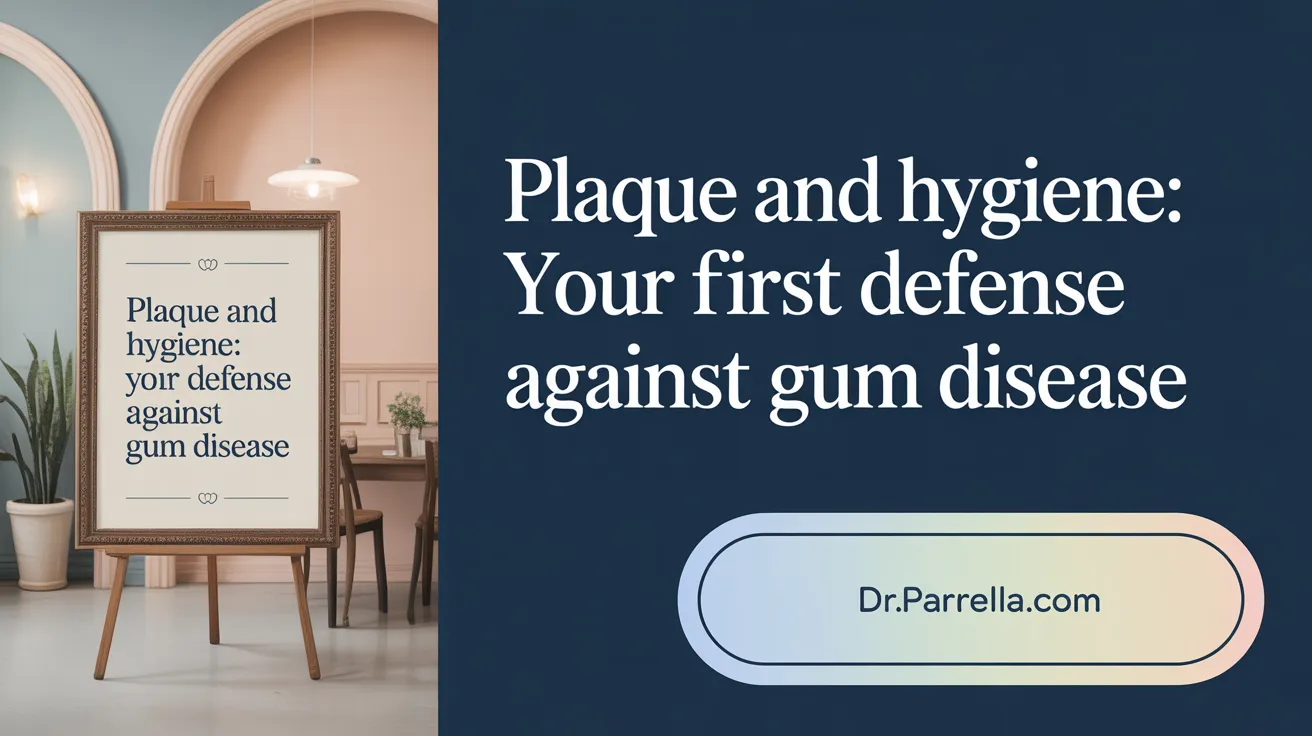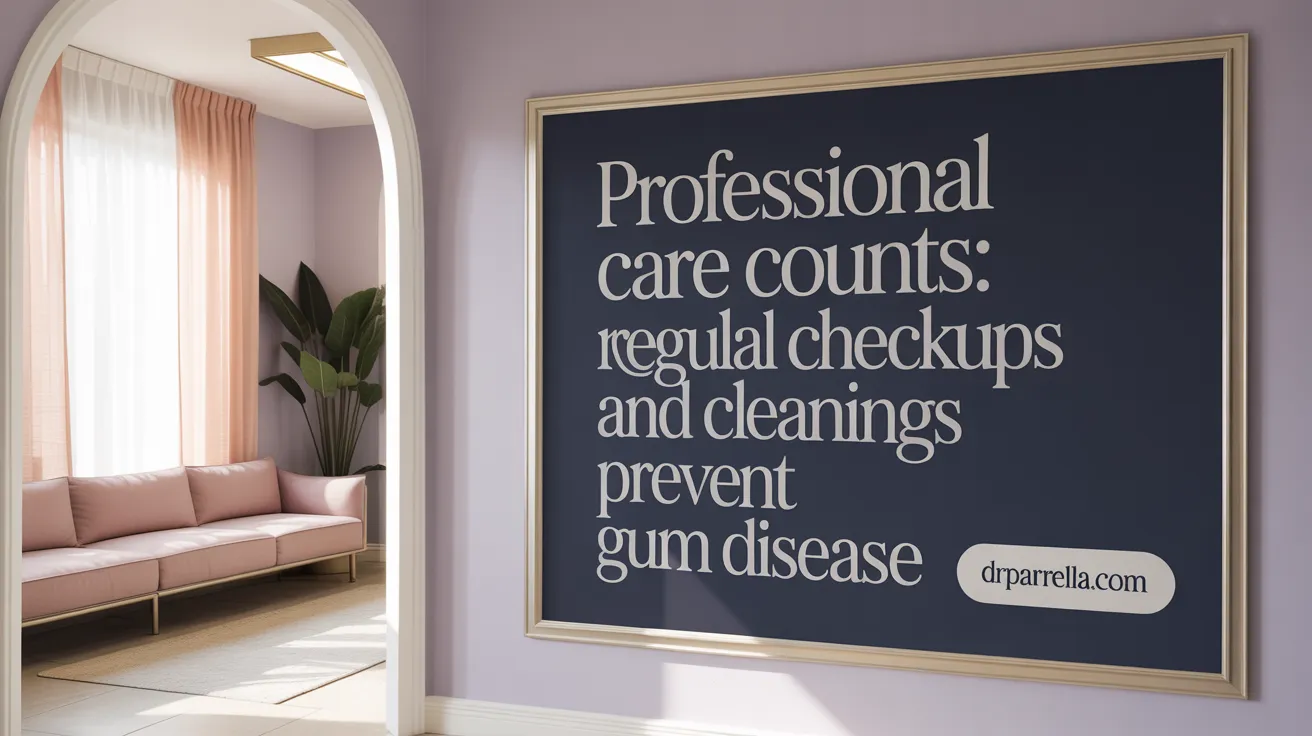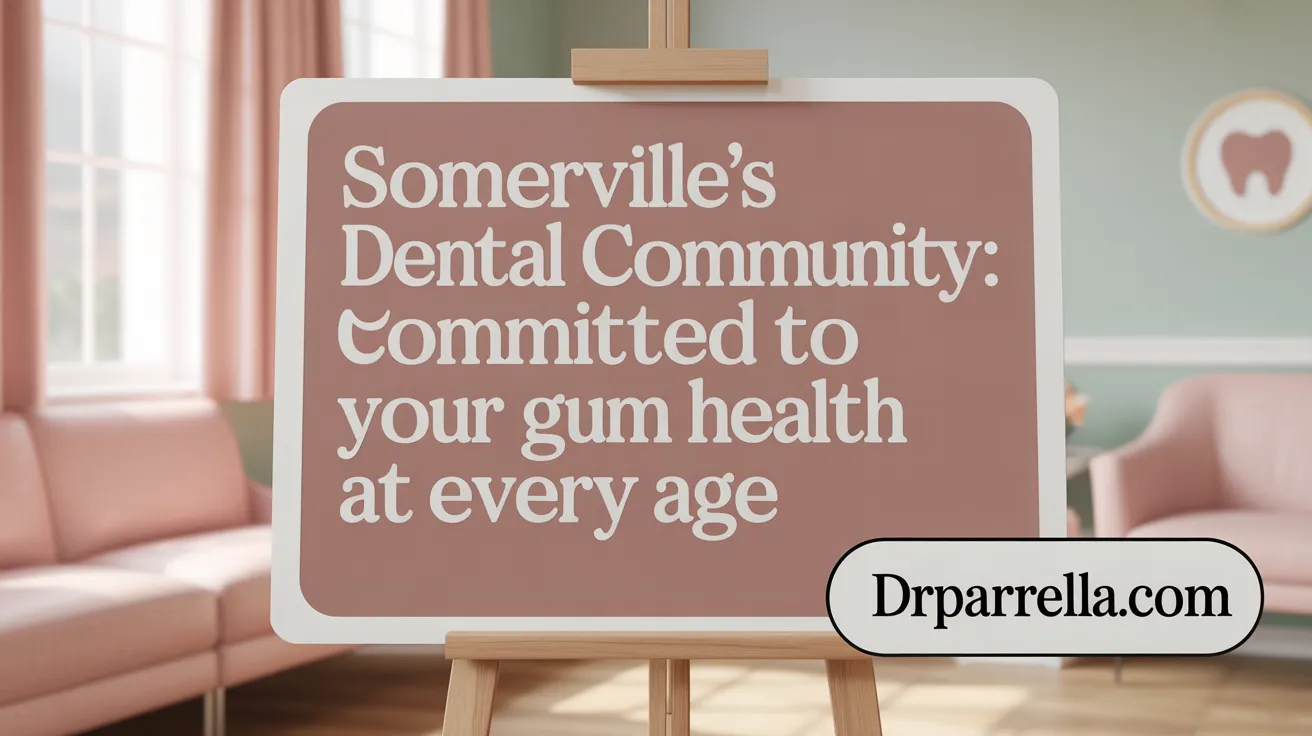Understanding Early Gum Disease and Its Impact
Prevalence of Gum Disease
Gum disease is a widespread condition affecting nearly half of all adults in the United States. It is notably common among older adults, with prevalence increasing to over 70% by age 65. This makes gum disease one of the most prevalent chronic conditions impacting oral health.
Initial Stages and Symptoms
The earliest stage of gum disease is called gingivitis. At this stage, gums may appear red, swollen, and bleed easily, especially during brushing or flossing. Gingivitis is often painless and reversible with proper care. If unaddressed, it can progress to periodontitis, a more severe form that affects the bone and tissues supporting teeth.
Importance of Early Detection
Because early gum disease can be subtle or symptom-free, regular dental checkups are essential. Early detection through professional exams allows for timely treatment, such as improved oral hygiene and professional cleaning, which can reverse gum inflammation and prevent progression. Managing gum disease early preserves natural teeth and supports overall health, reducing risks linked to heart disease and diabetes.
The Role of Plaque and Oral Hygiene in Gum Disease Prevention

What are the primary causes of early gum disease?
The early stage of gum disease, known as gingivitis, is primarily caused by the buildup of dental plaque. Plaque is a sticky film that forms on your teeth and gums due to bacteria combined with food particles and saliva. If not removed regularly, plaque hardens into tartar, which irritates and inflames the gums, leading to redness, swelling, and bleeding.
How does plaque form and what effects does it have?
Plaque begins to form within minutes after eating when bacteria feed on sugars and starches left on the teeth. This bacterial activity produces toxins that inflame gum tissues. If plaque isn’t thoroughly removed by brushing and flossing, it can mineralize into tartar, making the gums more vulnerable to infection and inflammation. Learn more about plaque and gum disease.
How does good oral hygiene prevent gum disease?
Maintaining good oral hygiene is essential to control plaque buildup and prevent gum disease. Brushing teeth at least twice daily using fluoride toothpaste helps remove plaque from visible surfaces. Daily flossing cleans between teeth and under the gum line where brushes can’t reach, further reducing plaque accumulation. Additionally, using an antimicrobial mouthwash can decrease bacteria in the mouth, lowering the risk of gum inflammation.
Daily oral care combined with regular professional dental cleanings dramatically reduces the chances of developing gum disease or allowing it to progress. Keeping your gums healthy protects your teeth’s supporting tissues and contributes to overall well-being.
Recognizing Early Warning Signs and Symptoms of Gum Disease

What are the early symptoms of gum disease patients should watch for?
Early gum disease, known as gingivitis, typically presents with red, swollen, and bleeding gums. Patients may also notice persistent bad breath, gum tenderness, and slight gum recession. These symptoms can be subtle and often go unnoticed without careful attention. Because gum disease is usually painless in its initial stages, recognizing these early signs is crucial to catching the condition before it worsens. Learn more about symptoms of gum disease.
Why is early detection through dental visits important?
Routine dental examinations play a vital role in early detection of gum disease. Dentists can identify early signs during checkups, including subtle redness or swelling and bleeding on probing. Detecting gum disease in the gingivitis stage allows for effective, reversible treatment through improved oral hygiene and professional cleanings. This prevents progression to periodontitis, where irreversible damage to gums and bone can lead to tooth loss. Regular dental visits every six months support timely intervention and preservation of oral health. For more information, see importance of early detection for gum disease.
Professional Dental Care: Preventive and Early Intervention Approaches

Importance of Regular Dental Checkups and Cleanings
Regular dental visits are fundamental for maintaining healthy gums and preventing the progression of gum disease. These checkups allow dental professionals to identify early signs of gum inflammation or infection that patients may not notice due to the often painless nature of early gum disease. Professional cleanings help remove plaque that at home brushing and flossing may miss, especially hardened plaque known as tartar, which harbors bacteria contributing to gum inflammation.
Professional Procedures such as Scaling and Root Planing
When early gum disease progresses beyond gingivitis into early periodontitis, professional deep cleaning procedures become essential. Scaling and root planing are specialized treatments that remove tartar and bacteria from beneath the gum line and smooth the roots of the teeth to encourage gum tissue reattachment. This treatment reduces periodontal pockets and slows or stops disease progression, helping to preserve teeth and supporting tissues.
Use of Advanced Diagnostics in Somerville Clinics
Clinics in Somerville, MA, such as Assembly Dental and Smile Dental Group, employ advanced diagnostic tools including pocket depth measurements, digital X-rays, and salivary bacterial testing. These technologies support early and accurate diagnosis of periodontal disease, allowing tailored treatment plans. Techniques such as 3D imaging in dental diagnostics help clinicians gain detailed insights. This patient-centric approach ensures interventions are as effective and minimally invasive as possible.
Treatment Options for Early Gum Disease
Early-stage gum disease or gingivitis is often reversible with thorough professional cleaning combined with improved home oral care including brushing and flossing. For early periodontitis, scaling and root planing is the cornerstone treatment. Additionally, dentists may recommend antimicrobial mouth rinses or localized antibiotics to reduce bacterial infection. Regular follow-up appointments monitor healing and gum health.
| Question | Answer | Detail |
|---|---|---|
| How do professional cleanings contribute to preventing gum disease? | They remove hardened plaque (tartar) that cannot be eliminated by home care. | This reduces bacterial load and inflammation leading to gum disease. |
| What treatments are available for early-stage gum disease? | Early-stage gingivitis is managed with improved oral hygiene and cleanings; early periodontitis may require scaling and root planing. | Early treatment reverses damage and prevents disease progression. |
Lifestyle and Risk Factors Influencing Gum Disease Prevention

Which lifestyle factors increase the risk of gum disease?
Smoking and tobacco use significantly increase the risk of gum disease by doubling the chances through weakening the immune system and encouraging plaque buildup. Poor diet, particularly one lacking in vitamin C, also contributes to gum disease by weakening gum tissue and delaying healing. Uncontrolled systemic health conditions, such as diabetes, further elevate risk by impairing the body's ability to fight infection. Additionally, chronic stress and genetic predisposition can make individuals more susceptible to periodontitis.
How can patients modify lifestyle to reduce gum disease risk?
Reducing gum disease risk involves several lifestyle changes. Quitting smoking or any tobacco use is one of the most effective steps to protect gum health. Maintaining a balanced diet rich in vitamins C and D supports strong gums and overall oral tissue health. Managing systemic conditions, especially diabetes, through proper medical care improves immune response and reduces infection risks. Stress management techniques can help the immune system stay effective in fighting oral bacteria. Alongside these, adhering to a strict oral hygiene routine with regular brushing, flossing, and dental visits ensures bacterial plaque is controlled before it harms gum tissue.
By addressing these lifestyle and health factors, patients greatly enhance their chances of preventing gum disease and maintaining healthy gums throughout life.
Community-Centered Dental Care in Somerville: Supporting Gum Health for All Ages

How does the Somerville dental community support gum disease prevention?
Local dental practices in Somerville, such as Smile Dental Group and Assembly Dental, prioritize a personalized approach to dental care. These clinics offer comprehensive services tailored for families, addressing the unique needs of both children and adults. They employ advanced technologies including 3D imaging in dental diagnostics for precise diagnostics and treatments like Invisalign and dental implants, which help maintain and restore oral health effectively.
Education plays a vital role, as these practices focus on teaching patients about proper oral hygiene tips techniques and prevention strategies. By encouraging daily brushing, flossing, and use of antiseptic mouthwashes alongside routine dental visits, they foster habits that reduce plaque buildup—the main cause of gum disease.
Why is community-focused dental care important in preventing gum disease?
Community-centered care raises awareness about gum disease risks and symptoms , encouraging early detection through regular checkups. This is especially critical for high-risk groups such as older adults, smokers, and individuals with systemic conditions like diabetes. By providing accessible, routine care and prompt intervention, Somerville’s dental providers help prevent progression from mild gingivitis to severe periodontitis, limiting tooth loss and associated health complications.
Such local initiatives contribute to overall oral health improvements by reducing the prevalence of periodontal disease and promoting healthier lifestyles. The combination of personalized treatment, preventive education, and use of modern techniques creates a supportive environment that empowers patients to maintain their gum health across all life stages.
Encouragement of Routine Visits and Early Care Seeking
Somerville clinics emphasize the importance of visiting the dentist regularly, ideally every six months or as advised. Early care seeking when symptoms like bleeding or swollen gums arise can lead to simpler treatments and better outcomes, preserving natural teeth and enhancing quality of life.
Maintaining Healthy Gums: A Lifelong Commitment
Prevention Essentials for Healthy Gums
Maintaining healthy gums begins with consistent, daily oral hygiene practices. Brushing at least twice a day using fluoride toothpaste helps remove plaque, the sticky bacteria film that is the main cause of gum disease. Flossing daily reaches areas between teeth where brushes can’t, preventing buildup that leads to inflammation. Incorporating an antimicrobial mouthwash can further reduce harmful bacteria. Regular dental visits for professional cleanings and checkups, typically every six months, are critical for early detection and removal of tartar, which cannot be eliminated by brushing alone.
Making Lifestyle Choices That Support Gum Health
Healthy gums are supported not only by good hygiene but also by mindful lifestyle choices. Avoiding tobacco use significantly lowers the risk of gum disease, as smoking weakens the immune system and encourages plaque formation. A balanced diet rich in vitamins C and D, along with calcium, helps strengthen gum tissue and bone. Managing stress and addressing medical conditions like diabetes also play vital roles in maintaining your oral health.
Awareness and Timely Intervention
Because gum disease often progresses without pain, patient awareness is crucial. Early signs such as bleeding during brushing or flossing, persistent bad breath, or red and swollen gums should prompt immediate dental consultation. Early intervention not only reverses mild gum disease like gingivitis but also prevents progression to more serious stages that can lead to tooth loss. Prioritizing your gum health through informed choices and professional care helps preserve your smile and overall well-being for life.
